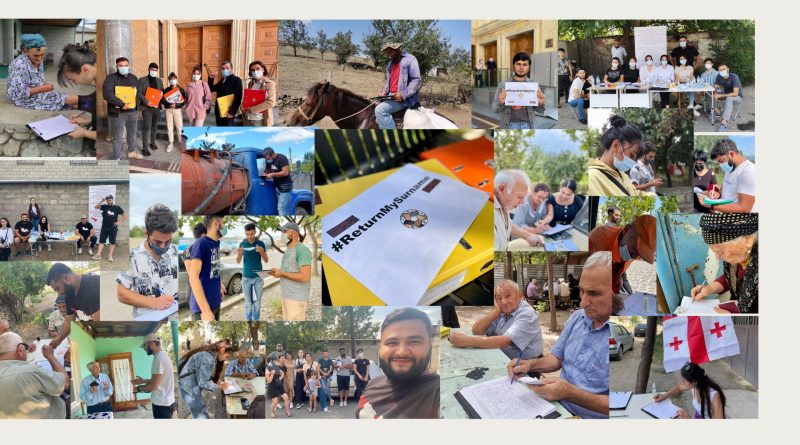“Salam” – the formula for the success of a public organization
The “Salam” office, located at 25/27 Oniashvili Street in Tbilisi, is a welcoming space dedicated to meeting the needs of ethnic minorities. For years, this organization has brought together 59 members to provide valuable support and assistance.
One of the co-founders, Rabil Ismail, tells us that the organization was founded in 2019 and since then, it has become a support for ethnic minorities living in Qvemo Kartli.
Citizens themselves contact the members of “Salam”, tell them about their problems and look for a solution together.
Rabil says that the main mission of the organization is to “advocate the needs of ethnic minorities at the central and local levels”.
He is well aware of the problems, barriers and challenges faced by the ethnic minorities living in the region. One of them is access to quality education.
Salam has dedicated years of effort to addressing this issue. Through numerous informational meetings, campaigns, and communication with government officials, progress has been made with the construction of two kindergartens in Bolnisi Municipality. Rabil highlights the challenges faced by ethnic minorities in Dmanis and Bolnis due to the lack of preschool institutions. Also, they do not have access to various services due to the language barrier.
During the Covid pandemic in 2020, representatives from the organization made personal visits to villages and informed residents about the state’s aid package for self-employed individuals, identified as 300 GEL. Thanks to their efforts, approximately 400 people were able to successfully receive their financial assistance.
“Return my last name” is one of the campaigns that the founders of the organization tell us about. In order to remove the Russian ending “ov” from Azerbaijani surnames, they collected 27,000 signatures and submitted them to the parliament. Although the legislature repealed 3,800 of them, the work was not in vain. Rabil Ismail considers the fact that the project of restoration of historical surnames has been implemented in the country for two years as a continuation of this work.
“Salam” filed a lawsuit against the Parliament due to the invalidation of part of the signatures.
One of the active representatives of “Salam” is Aitaji Khalil. He tells us about the projects that were implemented with his involvement.
Direct communication with disabled people and their families, listening to their problems and solving them with the help of the organization is a familiar task for Aitaji.
“Salam” formed alliances of persons with disabilities in Gardabani, Marneuli Bolnisi, Dmanis and Sagarejo in 2021. Aitaji, along with his teammates, assists persons with disabilities to get information about various services as well as increasing access to social services. One of the organization’s representatives, Beniamin Kasimoglu, is for years generously providing necessary medicines to an individual with disabilities that belong to this individual free of charge. This kind gesture saves the person’s time and expenses of transportation.
“Salam” has implemented a number of projects and campaigns during the 4 years of its existence.
“Present to me a book” campaign, “Teach me Georgian for free”, communicating the needs of 25 villages to the mayor’s office within 1 year, starting the construction of a school in Sapharlo village of Dmanisi municipality, returning the old name “Mamei” to Kirova village – this is an incomplete list of the activities that “Salam” was able to achieve.
The non-governmental organization already has its own niche in the Qvemo Kartli region. Co-founder Rabil calls “Salam” unrivalled.
As I was leaving the interview, I was told not to be surprised when seeing several full packages being humanitarian aid that “Salam” had gathered for the victims of the recent earthquake in Turkey. The person who shared this information with me jokinglys referred to “Salam” as a global organization and expressed readiness to prepare for facing future challenges.
Author: Miranda Putkaraya
The article was created with the support of the Civil Society Institute, within the framework of the project “Civil Society Initiative: Sustainable, Open and Accountable Civil Society Organizations for the Development of Georgia” funded by the European Union and the Konrad Adenauer Foundation. Kvemo Kartli media is solely responsible for its content and it may not reflect the views of the EU and the Konrad Adenauer Foundation.
The project is implemented by a consortium led by the Konrad Adenauer Foundation (KAS) together with the following non-governmental organizations – Center for Strategic Research and Development of Georgia (CSRDG), Civil Society Institute (CSI), Counseling and Training Center (CTC), Education Development and Employment Center (EDEC) and European Institute of Policy (IEP).
